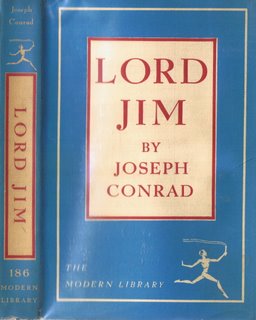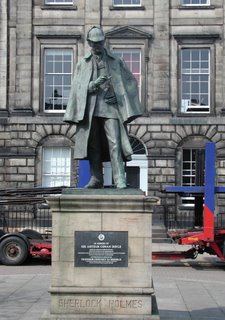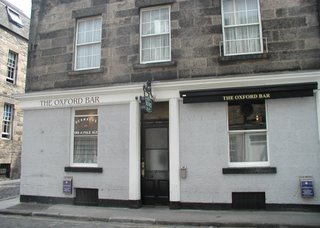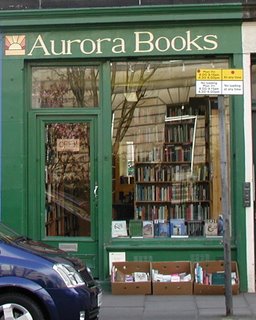I'm beginning to think that the best blogs are crosses between diaries and personal essays -- with, of course, the links and the interactivity thrown in there. I love personal essays -- one of my favorite books is Philip Lopate's anthology The Art of the Personal Essay. If the voice in an essay is interesting, it almost doesn't matter what the subject is. I read them for the personality, the sense of the author that lies behind the words, and I think that's what I enjoy about blogs too. I want a sense of a personality coming through. And I love the way that personal essays -- and blogs -- don't have to be consistent or coherent from one part to the next. They are places to explore ideas, not necessarily to present well-thought-out conclusions. Montaigne, one of the best personal essayists was upfront about being contradictory. And people themselves are contradictory, so why not?
I’ve thought a bit about the connection myself. Early in the evolution of my blog, I looked to personal essays for inspiration. I haven’t read as widely in that genre as I’d like though and I’m grateful for Dorothy’s recommendation of the Lopate anthology. I’d love to hear recommendations from others as well.
It occurred to me recently that book bloggers might also take inspiration from travel writing. Claire Harman, biographer of Robert Louis Stevenson, says of his first foray into travel writing (An Inland Voyage):
What he intended as "an easy book," riding on the novelty of his itinerary, turned into an impromptu prospectus of the author’s personality, philosophy and literary style.
I’m a fan of Stevenson’s travel books (and incidentally also of his essays) and the sort of travel writing that Harman describes is the sort I most enjoy in its contemporary guise as well.
Some criticize travel writing that reflects back on the author in this manner as arrogant. They scoff at writers who travel many miles to see a new place then seem unable to get out of their own way and truly see the place at which they’ve arrived. Certainly I’ve come across books of which this is a fair criticism. But I’m more inclined to regard the reverse as arrogant. I think that those who light down in a wholly unfamiliar place and shortly thereafter purport to produce an objective and authoritative account of it are deluding themselves. What they can credibly offer is their perceptions of the new place and their reflections on what their encounter with that place reveals about themselves. This can make for compelling reading.
How is this brief meditation on travel writing relevant to the practice of book blogging? My favourite litbloggers travel into books with an open mind and send back dispatches. They don’t purport to describe the book in objective fashion; they write about their encounter with the book and thereby reveal something about their previous reading, their preconceptions, their aesthetic sensibilities. If it’s a return visit rather than a first encounter, they may reflect on shifts in their perception of the terrain this time around. And, most important, rather than expecting fellow readers to take their word as final, they encourage us to pick up the book and see it for ourselves.





